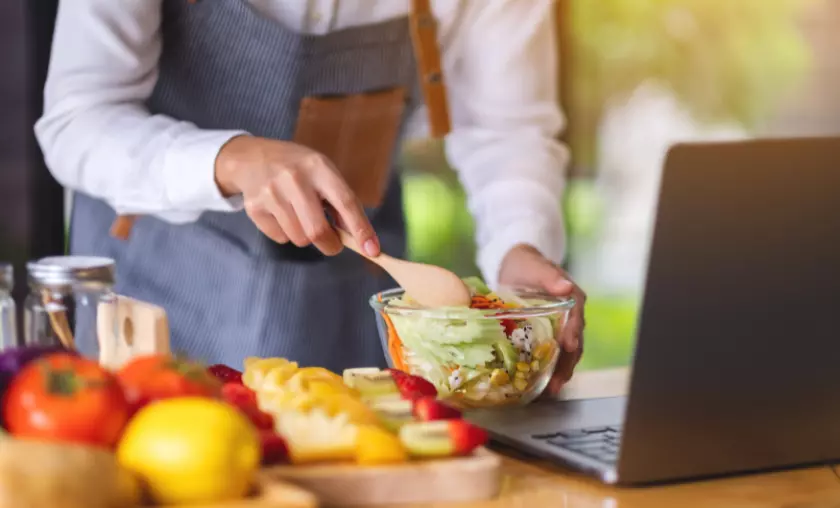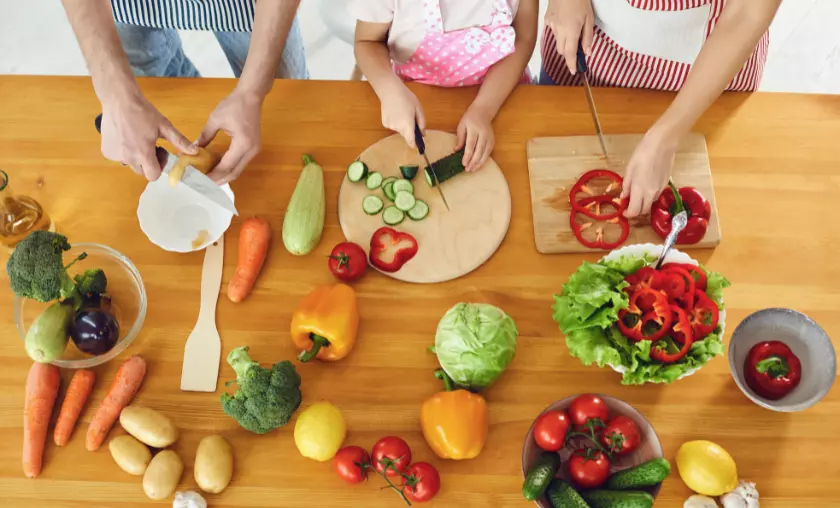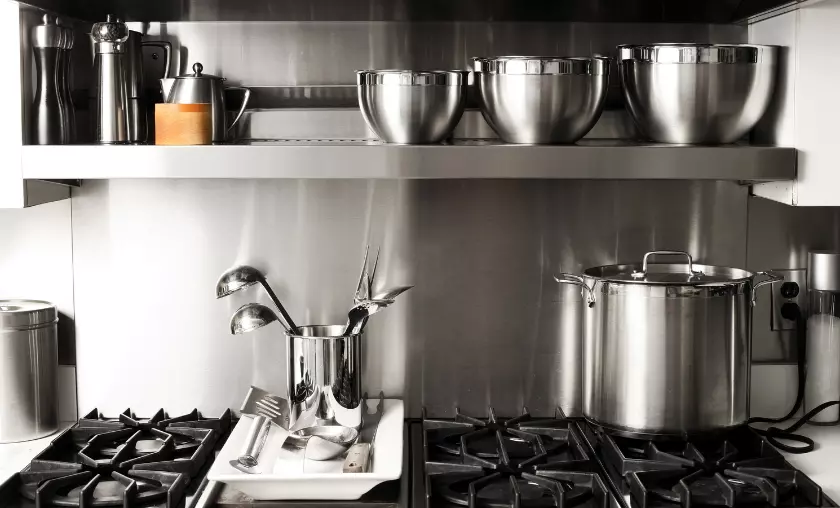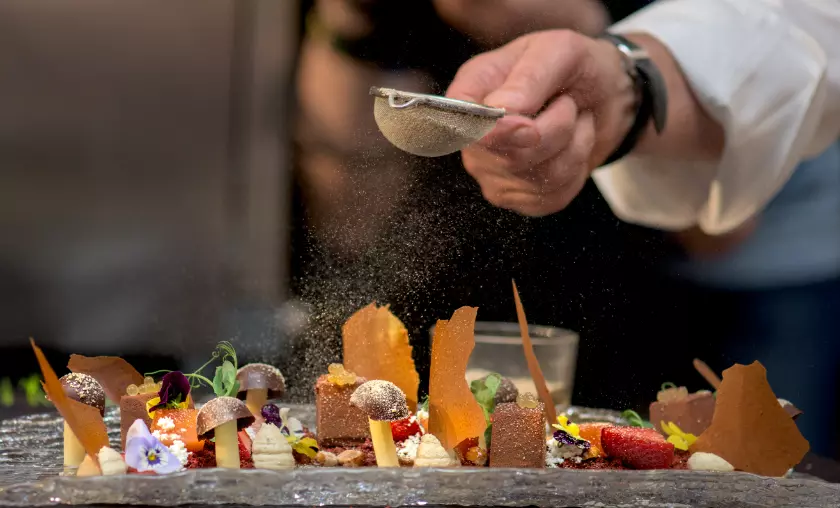Cooking is a valuable life skill that brings joy and nourishment to individuals and those with whom they share meals. If you’re new to the world of cooking, it can be exciting and daunting. Cooking classes for beginners offer an excellent way to build your culinary confidence, learn fundamental techniques, and explore the world of flavors and cuisines. In these classes, you’ll discover the basics of meal preparation, ingredient selection, and cooking methods.
Whether you aspire to become a master chef or want to create delicious and nutritious meals at home, cooking classes for beginners provide a solid foundation to embark on your culinary journey.
Cooking Classes for Beginners
Getting Started
Embarking on a culinary learning journey is a rewarding experience that brings a host of benefits to both novice and seasoned cooks alike. Firstly, it expands one’s culinary horizons, introducing them to diverse flavors, techniques, and cuisines.
Learning to cook equips individuals with practical life skills and fosters a deep appreciation for different cultures and their culinary traditions. It encourages exploration and experimentation in the kitchen, promoting creativity and innovation in meal preparation.
Ultimately, a culinary learning journey is a transformative experience that enriches one’s palate, health, and relationships, making it a fulfilling and enjoyable endeavor.
Choosing the Right Cooking Class
Where to Start
Selecting the right cooking class is the initial step in your culinary adventure. To begin, consider your interests and goals in the kitchen. Do you want to master a specific cuisine, learn basic cooking techniques, or focus on healthier meal preparation? Next, check for classes that match your skill level, whether you’re a complete novice or have some cooking experience. Location, timing, and budget are also important factors to contemplate.
Different Types of Classes to Match Your Interests
Research classes in your area read reviews, and inquire about class size and the instructor’s credentials. The perfect cooking class will ultimately align with your objectives and offer an enjoyable, hands-on experience.
Local Cooking Schools
Hands-On Learning
Local cooking schools offer an excellent opportunity for hands-on learning in the culinary world. These schools often have experienced chefs as instructors who guide you through the art of cooking. You’ll not only learn various techniques but also get to practice them in a collaborative and interactive environment. Additionally, local schools might focus on regional or cultural cuisines, allowing you to explore diverse flavors.
- Basic Cooking Skills Classes: These classes are perfect for beginners and cover fundamental skills like chopping, sautéing, and baking. Advantages include building a solid culinary foundation and boosting confidence in the kitchen.
- Cuisine-Specific Classes: From Italian to Thai, these classes focus on a particular cuisine, allowing you to delve deep into its flavors and techniques. Advantages include mastering a specific style of cooking and expanding your palate.
- Baking and Pastry Classes: Ideal for dessert lovers, these classes teach the art of making cakes, pastries, and bread. Advantages include learning precision and patience in baking.
- Healthy Cooking Classes: These classes emphasize nutritious recipes and cooking methods, promoting a balanced diet. Advantages include improving your overall health and well-being.
- Wine and Food Pairing Classes: Explore the world of wine and how to pair it with different dishes. Advantages include impressing your guests with perfect food and wine combinations.
Whether you’re a novice looking to build a strong foundation or an enthusiast eager to refine your skills, local cooking schools provide a supportive and engaging platform to sharpen your culinary prowess.
Online Cooking Classes
Learning from Home
Online cooking classes offer a convenient way to learn culinary skills from the comfort of your own kitchen. They provide the flexibility to choose from a wide range of courses, from basic cooking techniques to advanced gourmet meals. You can follow along with video tutorials and step-by-step instructions at your own pace.
These classes often have a diverse global reach, allowing you to explore various cuisines and cooking styles. Additionally, online forums and communities enable you to connect with fellow food enthusiasts, share experiences, and seek advice.
The Convenience & Flexibility of Virtual Classes
Whether you’re a beginner or a seasoned cook, online cooking classes provide a valuable learning platform accessible to all.
Basic Cooking Techniques
Building a Strong Foundation
Learning basic cooking techniques is like mastering the alphabet before reading a book. These fundamental skills, such as chopping, sautéing, and searing, form the cornerstone of cooking. They enhance your culinary prowess and allow you to experiment confidently with a wide range of recipes. Understanding these basics is essential whether you’re a novice or aspiring chef.
Fundamental Skills Covered in Beginner Classes
With a solid foundation in cooking techniques, you’ll be better equipped to tackle more advanced dishes and explore your creativity in the kitchen.
Ingredient Exploration
From Pantry to Plate
In beginner cooking classes, ingredient exploration is crucial to building culinary skills. Participants learn to identify and work with a variety of ingredients commonly found in the kitchen. This includes understanding the flavor profiles of herbs, spices, and seasonings and selecting and preparing fresh produce, proteins, and grains. Ingredient exploration introduces students to diverse tastes and textures and helps them understand how different components create delicious dishes.
- Ingredient Familiarity: Cooking classes introduce you to a wide range of ingredients, from exotic spices to fresh herbs, helping you become familiar with them.
- Flavor Pairing: You’ll learn how different ingredients complement each other, allowing you to experiment with unique flavor combinations.
- Cultural Diversity: Many classes focus on international cuisines, exposing you to ingredients and flavors worldwide.
- Seasonal Cooking: Classes often emphasize using seasonal ingredients, teaching you to make the most of what’s fresh and available.
- Creative Confidence: Exploring new ingredients and flavors in a guided setting boosts your confidence to experiment and create your own dishes at home.
It’s an exciting journey from the pantry to the plate, where individuals gain confidence in selecting, handling, and combining ingredients to craft flavorful meals.
Cooking Tools & Equipment
Kitchen Essentials
In cooking classes for beginners, you’ll become well-acquainted with various kitchen tools and equipment essential for preparing delicious meals. These classes typically cover the basics, from knives and cutting boards to pots, pans, and utensils. You’ll learn how to choose the right tool for specific tasks, enhancing your culinary skills and making your time in the kitchen more efficient.
Importance of Familiarizing Yourself with Kitchen Gear
Understanding the purpose and proper use of these tools is fundamental to becoming a proficient cook, and cooking classes provide hands-on guidance to ensure you’re comfortable and capable with your kitchen arsenal.
Culinary Confidence
Beyond the Basics
Certainly, beyond the basics, culinary confidence blossoms. As you gain experience and knowledge through cooking classes, you’ll find yourself embracing creative freedom in the kitchen.
You’ll no longer rely solely on recipes; instead, you’ll confidently experiment with flavors and ingredients, crafting dishes that reflect your unique tastes. Your ability to adapt and troubleshoot will grow, ensuring that even kitchen mishaps become learning opportunities rather than setbacks.
- Skill Mastery: Cooking classes provide hands-on experience, helping you master fundamental cooking techniques and build a strong culinary foundation.
- Ingredient Knowledge: Exploring new ingredients and flavors in classes expands your culinary horizons, boosting your confidence to experiment with various foods.
- Equipment Familiarity: Learning about kitchen tools and equipment ensures you’re comfortable using them, making you more efficient in the kitchen.
- Recipe Expertise: As you progress through classes, you become adept at following and adapting recipes, gaining confidence in your ability to create delicious dishes.
- Creative Freedom: With a solid culinary foundation, you gain the freedom to explore your creativity in the kitchen, confidently crafting unique and flavorful meals.
Overall, culinary confidence extends beyond following recipes; it’s about mastering the art and science of cooking and becoming a capable and inventive chef in your own right.
Putting It All Together
Enjoying the Fruits of Your Labor
As you progress through cooking classes and build your culinary skills, you’ll find immense satisfaction in putting it all together. It’s not just about preparing meals; it’s about creating experiences and sharing delicious moments with family and friends. With the knowledge gained from classes, you’ll confidently plan, prepare, and present meals that taste great and bring joy to those you serve.
- Host Dinner Parties: Showcase your culinary talents by inviting friends and family for dinner parties. Prepare a menu that highlights your newfound skills, and enjoy the compliments and camaraderie.
- Experiment with New Recipes: Be bold and step out of your comfort zone. Try out different cuisines, challenging recipes, and exotic ingredients to keep your cooking journey exciting and diverse.
- Teach Others: Share your knowledge by teaching cooking to others. This could be through informal lessons with friends or family or volunteering at a local community center.
- Create Your Signature Dishes: Put your unique twist on classic recipes and develop your signature dishes. These dishes can become your go-to options to impress guests or treat yourself.
- Document Your Culinary Adventures: Start a food blog or an Instagram account to document your cooking adventures. Not only does this allow you to showcase your creations, but it also connects you with a community of fellow food enthusiasts.
Cooking becomes more than a chore; it’s a creative and rewarding journey that allows you to savor the fruits of your labor and create lasting memories around the dining table.
Conclusion
In conclusion, embarking on cooking classes for beginners is a rewarding journey that opens the door to a world of culinary possibilities. These classes provide essential skills, techniques, and knowledge that empower individuals to confidently take control of their kitchens.
Cooking is not just about preparing meals; it’s an art form and a means of self-expression. Learning from experienced instructors, experimenting with new ingredients, and mastering various cooking methods can be educational and enjoyable.
Moreover, cooking classes foster a sense of creativity and self-sufficiency while promoting healthier eating habits. They also provide an excellent opportunity to bond with friends and family over shared culinary experiences.
FAQ’s
What Types of Cooking Classes Are Available for Beginners?
Beginners can choose from a wide range of cooking classes, including those focused on specific cuisines (e.g., Italian, Thai) or techniques (e.g., baking, grilling). Some classes cater to dietary preferences, such as vegetarian or gluten-free cooking.
Do I Need to Bring Any Equipment or Ingredients to Cooking Classes?
Most cooking classes provide all necessary ingredients and equipment. However, it’s a good idea to inquire about specific requirements when registering. Occasionally, classes may suggest bringing an apron or knife.
How Can I Find Cooking Classes for Beginners in My Area?
To find local cooking classes, you can search online, check with community centers, culinary schools, or specialty food stores, or inquire at your local library or through social media groups dedicated to cooking enthusiasts.
Are Virtual Cooking Classes a Suitable Option for Beginners?
Yes, virtual cooking classes have become increasingly popular and are suitable for beginners. They offer the convenience of learning from home and often provide detailed instructions, making them accessible to individuals of all skill levels.
Can I Expect to Develop Practical Cooking Skills After Taking Beginner’s Cooking Classes?
Absolutely. Beginner’s cooking classes are designed to equip participants with practical skills and knowledge, enabling them to prepare basic meals confidently. With practice and further exploration, students can build upon this foundation and become proficient home cooks.
To Read More Similar Articles, Click Here.
Thanks for Visiting Our Website. If You Appreciate Our Work, Kindly Show Us Some Support in Our Comments Section 🙂


